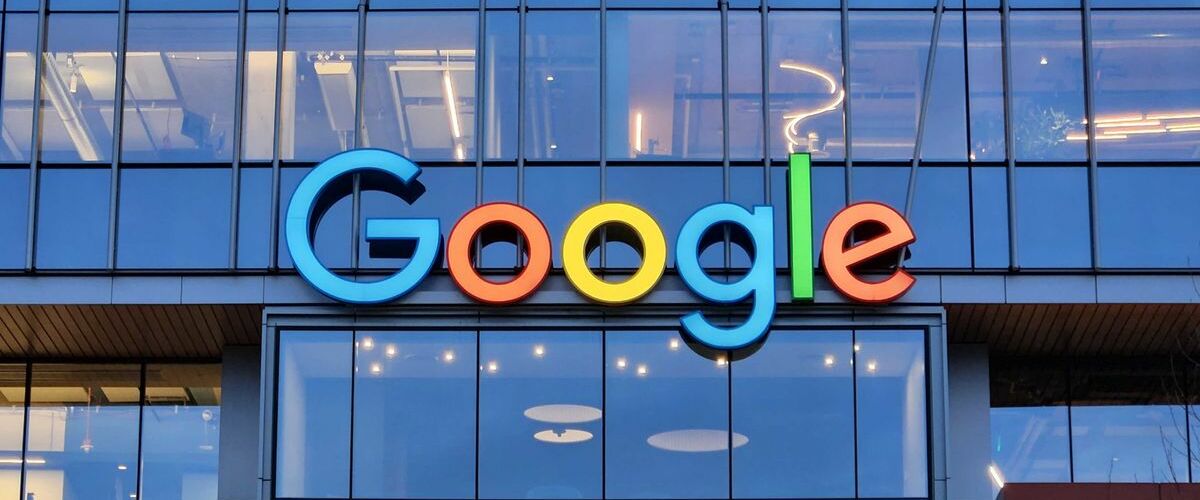I/O 2024 is right around the corner, but Google probably just made a bigger announcement than anything we’ll see next month. Rick Osterloh is no longer just running devices and services, but instead, will take the lead for a new “Platforms and Devices” team. With this reorganization, Osterloh is now in charge of Android, Chrome, ChromeOS, Photos, and more, while still overseeing the Pixel team.
If it weren’t for listing out all of the different departments, it might only seem like a surface-level change within Alphabet. However, there’s another major change as Hiroshi Lockheimer will be starting “work on some new projects across Alphabet.” While I’m happy to see that Hiroshi will remain with the company, it will be a bit odd not to see him steering the Android and ChromeOS ship.
This isn’t anything we haven’t heard before

In a statement made to The Verge, Osterloh explained that AI was at the center of this dramatic reorganization. Considering how hard Google is determined to throw AI and Gemini into everything it can, this consolidation makes a bit more sense. But I can’t help but feel as though we’ve heard this before.
When Google unveiled the Pixel 6 powered by the Tensor chip, it was under the premise that the hardware and software teams were working hand-in-hand. Essentially, giving the Pixel lineup the same treatment enjoyed by the iPhone, with the SoC being tweaked and tuned to the hardware it’s powering.
There’s an argument to be made on both sides as to whether Google has followed through on the proposition laid forth just a few years ago. But then, the consumer availability of AI was shot of out a cannon with OpenAI and ChatGPT lighting the fuse. Google fumbled the launch of Bard, which has since been rebranded to Gemini. Meanwhile, Google continues to stumble a bit, as evidenced by its claiming that the Pixel 8 wouldn’t be getting Gemini Nano, only to backtrack on those claims.
Not all hope is lost for Google, as it’s still relatively early in the AI game. However, Osterloh needs to grab the bull by the horns, so to speak, and actually fix the problems that still plague users. That means turning Google into the leader it’s supposed to be and stopping Samsung from taking all of the credit.
Perhaps this is the fundamental shift that is needed to avoid issues like Gemini Nano on the Pixel 8. Instead of promising seven years of updates, don’t make users of the most expensive Pixel phone feel like second-class citizens. Act like you own the place, and not just like you’re a temporary resident.
Is this reorganization really just all because of AI? Probably not, but that’s Google’s story and its sticking to it.
It’s not like this is Google’s first foray into consumer-facing AI products or features. Pixel phones have long ranked among the best Android phones, even when the camera hardware was laughably outclassed. This was all made possible by the Machine Learning models that were (and still are) being used on Pixel phones, which allow us to take a clear picture of the starry night sky.
The difference now is that Google is attempting to be more systematic in how it implements AI without being seen as falling behind. Rumors and speculation suggest Apple is planning some big AI-focused announcements at its upcoming developer conference. But Google has a chance to get ahead of the curve simply because I/O is happening first.
If there’s one common denominator between Google and Apple, it’s that both Siri and Assistant are a bit lost. You can’t get Assistant to reliably set a reminder, and while Gemini might seem superior, it lacks a lot of the basic functionality we’d expect. Sure, it’s cool to ask Gemini to help you plan and book a trip, but go ahead and try asking it to turn off your lights. Meanwhile, Siri is laughable at best, so much to the point that I’ve remapped the Action Button on my iPhone 15 Pro Max to use Perplexity instead of invoking Siri.
Google Assistant fails me once again. Asked it to remind me in an hour to reply to an email. It performs a Google search instead. Sigh. pic.twitter.com/Jz8qfxOqQKApril 18, 2024
One recurring thought that I have is that it’s almost like Osterloh is running a company (Pixel) within a company (Google) within a company (Alphabet) This thought is driven even further home after reading that “the Google Research teams focused on computational photography and on-device intelligence will also be moving over to join the new org to bring deep AI expertise across platforms and devices.”
In doing so, Osterloh has essentially all of the functioning bodies of a phone manufacturer reporting to him. Basically, I think of it as Osterloh forming a “Pixel Phone” company without going the startup route like Carl Pei did with Nothing. Not to mention the added benefit of having teams of people he’s already familiar with, combined with the financial backing of Google/Alphabet.
Something else might be at play

We knew that Google would be working to implement AI into the devices and tools that we use every day. It really was only a matter of time, but there’s just one more aspect of today’s announcement that has left me scratching my head. Qualcomm CEO Cristiano Amon provided the following statement to The Verge: “I look forward to working with Rick to deliver leading Android experiences powered by Snapdragon not only in mobile but across Auto, XR and Compute.”
Has Google’s partnership with Samsung come to an end? Will Qualcomm manufacture Tensor chips moving forward? Is this Google reaching for the “white flag,” signaling the end of the Tensor program as we know it? Am I over-analyzing a single sentence? Other than that last question, only time will tell.
If this is the end of the current iteration of Tensor, the writing has kind of been on the wall for a while now. Last year, reports claimed that Google was “pushing back” the launch of its “first custom Pixel chip” until sometime in 2025. Initially, the plan was for this “custom Pixel chip” to be the Tensor G3. It would be built by TSMC, as opposed to Samsung, while looking to provide a true flagship experience, one that could rival the best from Qualcomm and maybe even Apple.
Are we witnessing the “beginning of the end” for Tensor? Or maybe Tensor is next in line to be overhauled.
It wouldn’t be completely out of left field for Google to pivot and work with Qualcomm. It happened with the Pixel Watch 2, which ditched the modified Samsung Exynos SoC in favor of Qualcomm’s Snapdragon W5.
Perhaps instead of working with Samsung on the design, Google is looking to shore up its relationship with Qualcomm. It seems as though the forthcoming Snapdragon X Elite chips are capable of rivaling Apple Silicon, something that Windows and ChromeOS devices have sorely needed for years. that means improved performance, paired with sorely-needed improved efficiency, while also being able to provide the same experience on Arm devices as you find with non-mobile processors.
Maybe all of this is just a long example of how one tries to think “outside of the box.” I just can’t help but think that Google has much bigger plans in store for the future. If I’m right, Google’s biggest announcement in years is just the first drop in the bucket.






